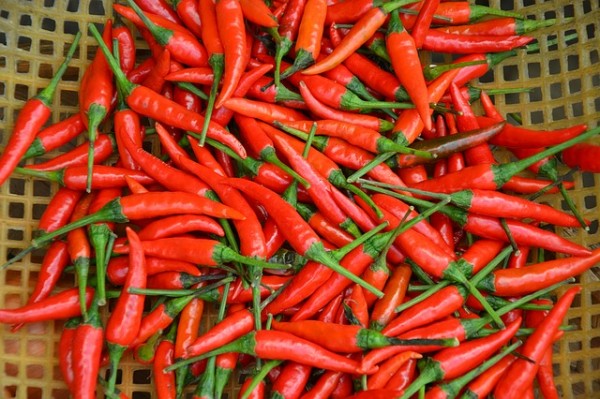By Charissa Echavez, | January 18, 2017

Chili Pepper
Good news for spicy food lovers out there. A new study from the Larner College of Medicine at the University of Vermont found a link between eating spicy food and longer life span.
To carry out the experiment, researchers utilized the National Health and Nutrition Examination Survey of more than 16,000 men from 1988 to 1994. They found that after nearly two decades, an estimated 34 percent of the men died. But when information was restricted to only those who consumed chili peppers, the mortality rate significantly dropped to 22 percent.
Like Us on Facebook
The result thus suggested that chili peppers can slash the total mortality rate by up to 13 percent. However, while researchers argue that the findings could support a diet of chili peppers to increase life span from any death cause, it was found that it was best for cardiovascular diseases such as heart problems and stroke.
The study found that the a large component in peppers called 'capsaicin', also commonly used as an anti-arthritis and pain killer, could help prevent obesity and regulate the blood flow of the heart.
"The types of deaths that were lowest in the pepper group were deaths due to vascular disease, heart attacks and stroke," Dr. Benjamin Litternberg, one of the study authors, said.
Furthermore, authors also noted that peppers contain anti-microbial properties that could "indirectly affect the host by altering the gut microbiota."
The current research coincided with a previous study conducted on nearly half a million Chinese people over seven years who consumed spicy food at least thrice a week. They found that mortality rate for those who ate spicy food was slashed by 14 percent to those who didn't.
However, Litternberg noted that further studies are still needed to strengthen such conclusion. He further advised that "There's a whole bunch of better, stronger, more convincing ways to improve your health than to go on a chili pepper diet."
The study was published in the journal PLoS ONE.
-
Use of Coronavirus Pandemic Drones Raises Privacy Concerns: Drones Spread Fear, Local Officials Say

-
Coronavirus Hampers The Delivery Of Lockheed Martin F-35 Stealth Fighters For 2020

-
Instagram Speeds Up Plans to Add Account Memorialization Feature Due to COVID-19 Deaths

-
NASA: Perseverance Plans to Bring 'Mars Rock' to Earth in 2031

-
600 Dead And 3,000 In The Hospital as Iranians Believed Drinking High-Concentrations of Alcohol Can Cure The Coronavirus

-
600 Dead And 3,000 In The Hospital as Iranians Believed Drinking High-Concentrations of Alcohol Can Cure The Coronavirus

-
COVID-19: Doctors, Nurses Use Virtual Reality to Learn New Skills in Treating Coronavirus Patients







